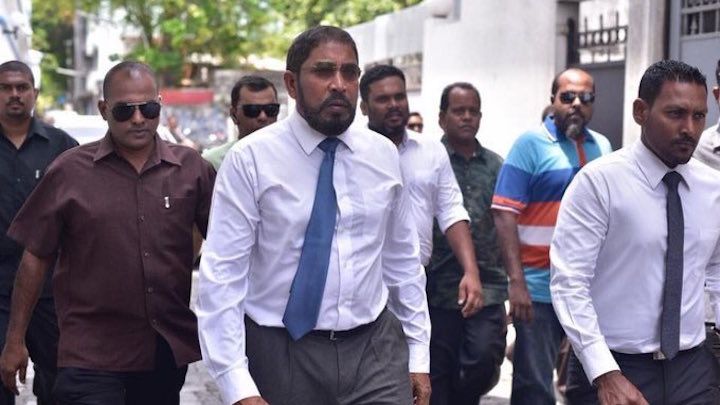Gasim arrested at midnight on fresh charges, remanded for 15 days
The police claimed that Gasim was encouraging the overthrow of the government in his speeches at nightly opposition rallies. Leaving him free would impede the investigation as he could hide evidence and influence witnesses, they said.

22 Apr 2017, 09:00
Jumhooree Party leader Gasim Ibrahim was arrested at midnight Friday from his home in Malé on fresh charges of bribery and attempting to overthrow the government.
Gasim was put on trial earlier this month on bribery charges, a day after the high court ordered his release from a six-day remand detention.
According to the second arrest warrant granted by Chief Judge Abdul Bari Yousuf, the business tycoon is accused of influencing lawmakers to sign a no-confidence motion to remove the speaker and deputy speaker of parliament. He was also accused of influencing judges as well as police and military officers and of inciting fear and sowing discord among the public.
The police claimed that Gasim was encouraging the alleged actions in his speeches at nightly opposition rallies. Leaving him free would impede the investigation as he could hide evidence and influence witnesses, the warrant stated.
Become a member
Get full access to our archive and personalise your experience.
Already a member?
Discussion
No comments yet. Be the first to share your thoughts!
No comments yet. Be the first to join the conversation!
Join the Conversation
Sign in to share your thoughts under an alias and take part in the discussion. Independent journalism thrives on open, respectful debate — your voice matters.




